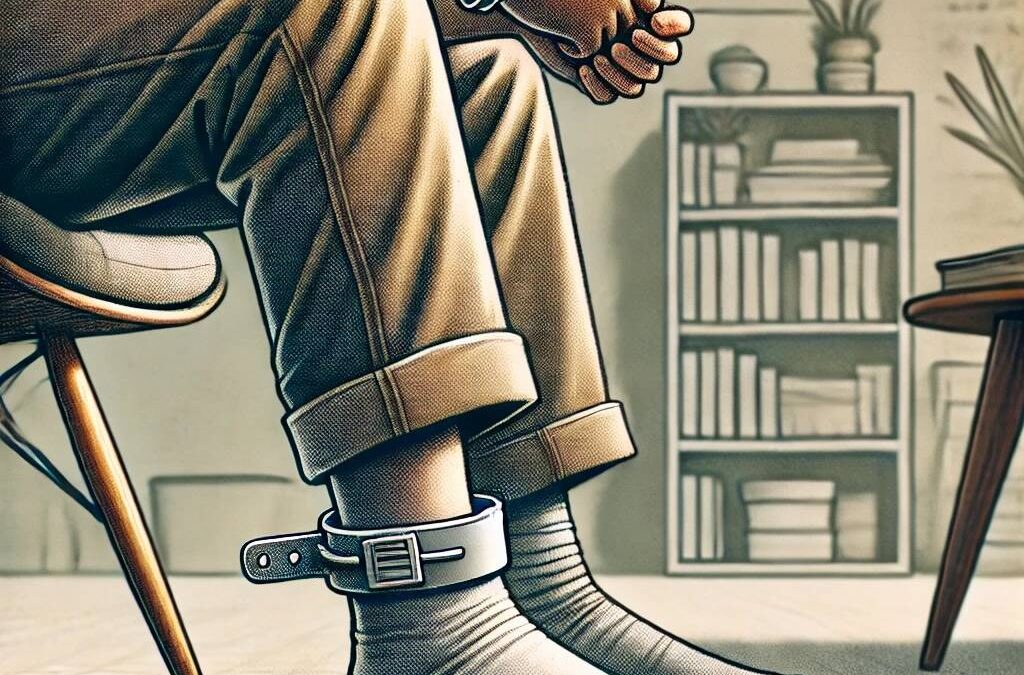Probation is often granted as an alternative to incarceration, allowing individuals to serve their sentences under court-ordered conditions while living in the community.
However, probation comes with strict guidelines, and violations can lead to serious consequences.
Understanding what constitutes a probation violation in South Carolina, how the legal system addresses such violations, and the potential penalties is crucial for anyone on probation or those supporting someone in this situation.
What Is Probation in South Carolina?
Probation is a court-ordered period during which a person convicted of a crime is allowed to remain in the community under certain conditions instead of serving time in prison.
These conditions are tailored to the individual’s case and are meant to promote rehabilitation and prevent further criminal activity.
Common probation terms may include:
- Reporting regularly to a probation officer.
- Abstaining from drug or alcohol use.
- Completing community service.
- Maintaining steady employment.
- Paying fines, restitution, or court fees.
The South Carolina Department of Probation, Parole, and Pardon Services (SCDPPPS) oversees probation supervision and ensures compliance with these terms.
Types of Probation Violations
Probation violations in South Carolina are generally categorized as technical violations or new offenses:
1. Technical Violations
A technical violation occurs when an individual fails to comply with the specific conditions of their probation without committing a new crime.
Examples include:
- Missing a scheduled meeting with a probation officer.
- Failing a drug test.
- Not completing community service hours.
- Moving without notifying the probation officer.
While technical violations may seem minor, they can still result in serious repercussions, including revocation of probation.
2. New Offenses
Committing a new crime while on probation constitutes a new offense violation. This is a more severe breach of probation terms, as it demonstrates a failure to adhere to the law itself.
In these cases, the court may impose penalties for both the original offense and the new crime.
Addressing a Probation Violation
When a probation officer suspects a violation, they may issue a violation report and request a probation revocation hearing. This hearing determines whether the probation terms were violated and what actions should be taken.
The Probation Revocation Hearing
A probation revocation hearing is held in front of a judge, not a jury.
During the hearing:
- The Probation Officer’s Role: The probation officer presents evidence of the alleged violation.
- The Defendant’s Rights: The defendant can respond to the allegations, present evidence, and call witnesses. It is crucial to have legal representation during this process.
- Burden of Proof: Unlike criminal trials, where the prosecution must prove guilt beyond a reasonable doubt, probation violations only require proof by a preponderance of the evidence. This lower standard makes it easier for the court to find a violation occurred.
Potential Outcomes of the Hearing
If the judge determines that a violation occurred, they have several options:
- Continue Probation: The judge may choose to allow the individual to remain on probation with the same or modified conditions.
- Extend Probation: The probation period may be lengthened to allow more time for compliance.
- Impose Additional Conditions: The court might add stricter terms, such as increased supervision or mandatory counseling.
- Revoke Probation: In cases of serious or repeated violations, the judge can revoke probation, resulting in incarceration for the remainder of the original sentence.
Consequences of a Probation Violation
The consequences of a probation violation depend on the severity of the breach and the judge’s discretion.
Factors that influence the outcome include:
- The nature of the violation (technical vs. new offense).
- The individual’s prior compliance with probation terms.
- The recommendations of the probation officer.
- The circumstances surrounding the violation.
For example, missing a probation meeting due to an emergency might be treated more leniently than a pattern of missed meetings or committing a new felony.
How to Avoid Probation Violations
Successfully completing probation requires diligence and a proactive approach.
Consider the following tips to stay on track:
- Understand Your Conditions: Ensure you are fully aware of all probation terms and ask questions if anything is unclear.
- Maintain Communication: Keep in regular contact with your probation officer and promptly inform them of any issues, such as employment changes or health problems.
- Document Everything: Keep records of completed community service hours, payments, and other compliance-related activities.
- Seek Support: If struggling with substance abuse or other challenges, seek professional help early to avoid potential violations.
Need help with your probation violation in South Carolina?
If you or a loved one is accused of violating probation, seeking legal representation is critical. A skilled attorney can evaluate the circumstances of the alleged violation, challenge the evidence, and advocate for a favorable outcome during the revocation hearing.
Probation violations in South Carolina can result in serious consequences, from extended probation terms to incarceration. Understanding the types of violations, the hearing process, and how to stay compliant with probation terms is essential for navigating the legal system effectively.
If you’re facing a probation violation, it’s important to act quickly and consult with a qualified attorney to protect your rights and minimize potential penalties.
If you’ve been accused of violating probation in South Carolina, don’t face the legal system alone. Contact Seaton & Duncan today to schedule a consultation and discuss your options with an experienced attorney.
Ready To Speak With An Attorney?
Let’s discuss the details of your case and see if we can help.

